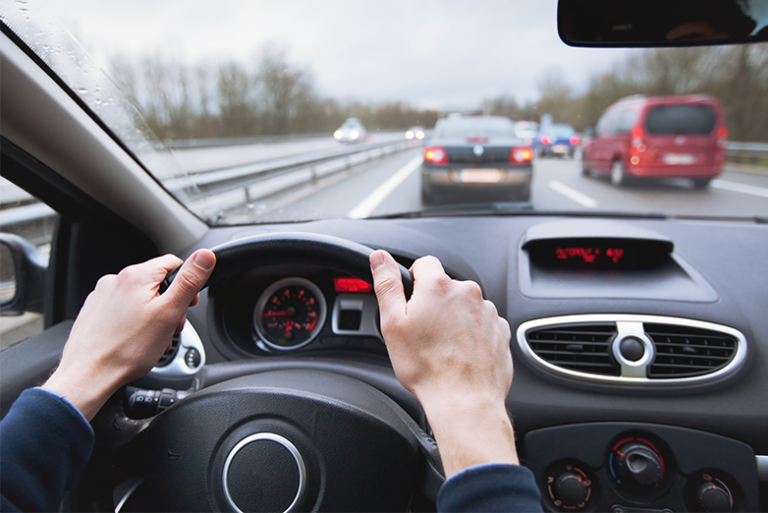Staying alert behind the wheel isn’t just a matter of common sense—it’s a life-saving responsibility. The best car accident lawyers in Tampa reported that every year, thousands of accidents are caused by drivers who lose focus, whether due to fatigue, distraction, or simple complacency. In today’s fast-paced world, long hours, stressful commutes, and digital distractions make it even easier to let your guard down.
So, how can drivers stay sharp and aware while navigating our busy roads? Read on to learn the most effective strategies to keep your eyes open, your reactions quick, and your journey safe.
Prioritize Sleep Before You Drive
Let’s start with the most basic but most critical factor: sleep. Driving drowsy is alarmingly similar to driving drunk. According to the National Sleep Foundation, being awake for 18 hours affects your reaction time, awareness, and decision-making as much as a blood alcohol level of 0.05%. And if you’ve gone 24 hours without sleep, that impairment jumps to the equivalent of a 0.10% BAC: above the legal limit in most states.
Aim for seven to nine hours of restful sleep before hitting the road, especially if you’re planning a long trip. If you feel yourself nodding off at the wheel, pull over immediately and take a power nap. Even 20 minutes of shut-eye can significantly restore alertness.
Fuel Your Body and Brain
What you eat and drink has a huge impact on how alert you feel while driving. Skip heavy, greasy meals before a drive, as they can leave you feeling sluggish and tired. Instead, opt for light, protein-rich foods and complex carbohydrates like whole grains, fruit, or nuts to maintain steady energy levels.
Hydration also plays a key role. Dehydration can lead to fatigue and difficulty concentrating. Keep a bottle of water within reach and sip regularly, especially on longer drives. And yes, caffeine can help—just be mindful not to rely on it too heavily. A cup of coffee can improve alertness temporarily, but it’s no substitute for adequate rest.
Know When to Take Breaks
It’s easy to underestimate how tiring driving can be, particularly during monotonous highway stretches. The general rule is to take a 15-minute break every two hours. Use that time to get out of the car, stretch, walk around, and give your eyes and brain a change of scenery.
If you’re driving cross-country or taking a road trip, plan rest stops into your route in advance. Even better, switch drivers if you’re traveling with someone else. Sharing the wheel helps keep both drivers more refreshed and attentive.
Minimize Distractions
Phones, GPS, snacks, music controls—today’s cars are full of distractions. While it may feel like multitasking, anything that takes your eyes or attention off the road is dangerous. Texting while driving, for example, increases the risk of crashing by 23 times.
To stay alert, reduce in-car distractions before you even start the engine. Set your GPS, choose your playlist or podcast, and put your phone on Do Not Disturb. If you need to take a call or send a message, pull over to a safe location first.
Use Mental and Physical Tricks
Staying alert doesn’t always require a full stop. There are small tricks you can use to maintain awareness while you drive. For example, chewing gum or sucking on mints can stimulate your senses and help keep you focused. Listening to engaging but not overly relaxing music can also prevent your brain from slipping into autopilot mode.
Keep your car slightly cool rather than overly warm. A lower temperature can help you stay alert, while warm air can have a sedative effect. Also, keep your posture upright and hands on the wheel—this helps your brain register that you’re in active mode, not lounging.
Know the Warning Signs of Fatigue
Most drivers experience drowsiness before they realize how severe it is. Learn to spot the red flags early. If you catch yourself yawning frequently, drifting out of your lane, missing traffic signs, or struggling to keep your eyes open, it’s time to act. Do not push through it or convince yourself that you’re “almost there.”
The moment you feel your concentration slipping, pull over safely. Whether it’s for a nap, a walk, or just some fresh air, it’s always better to delay arrival than risk an accident.
Stay Alert, Stay Alive
Being an alert driver is not just about you. It protects your passengers, other drivers, pedestrians, and everyone else who shares the road. Staying focused requires preparation, self-awareness, and the discipline to take care of yourself behind the wheel.
However, even the most vigilant drivers can fall victim to someone else’s negligence. If you’ve been injured in an accident caused by a drowsy or distracted driver, you may be entitled to compensation. Don’t wait to protect your rights—contact the best car accident lawyers in Tampa to discuss your legal options and take the next steps toward justice.
